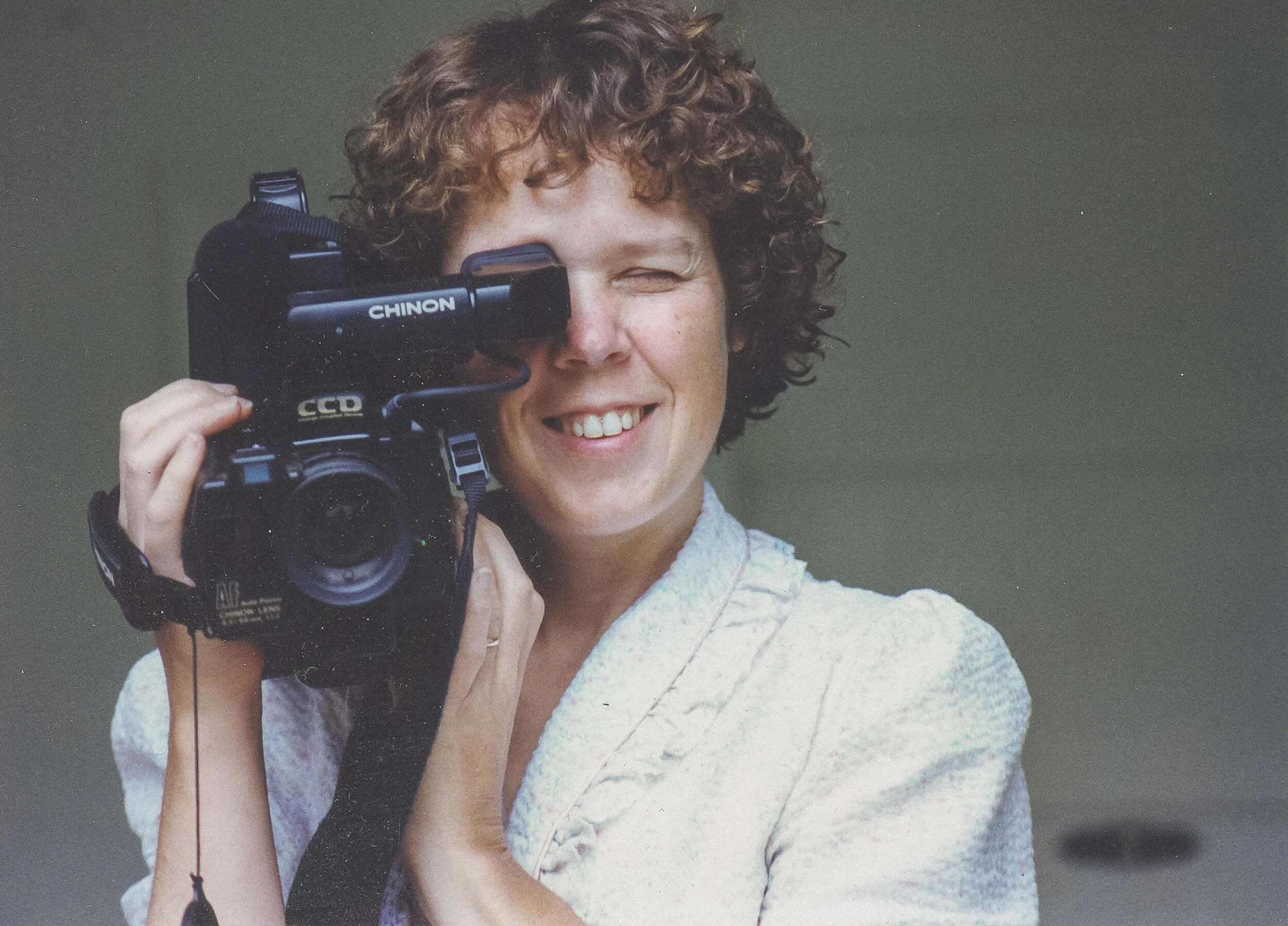The poetry of existence.
I’ve been shooting photographs and video and documenting life for around two decades now.
My influences are broad from within the visual and cinematic arts.
But one of the most significant is my mom. My dad too. But 73% my mom in certain specific ways relating to narrative storytelling and documenting.
My mom videoing our childhood at some point in the 1980s.
Here’s why.
She kept it going.
Terrence Malick and Robert Altman, two visionary directors, the former going strong, the latter deceased, experimented quietly in different ways throughout their careers. Different ways of using composition, sound, and the feeling of a scene in intriguing ways that could entertain and provoke within the context of the story they were telling.
Altman played with overlapping dialogue and long handheld shots that kept the focus on people talking and interacting over each other. Rather than the rat-a-tat-tat of one person talking, then another, there were people constantly moving and talking over and around one another in many of his films - and sometimes off-camera - in fact, sometimes the dialogue happening off-camera is more important to moving the story along than what we’re actually seeing.
Malick has crafted many beautiful, provoking, poetic films that also focus on capturing the feeling, the presence, the happening of a moment in earth’s existence, rather than blazing along with the camera directly focusing on the action. There’s an ephemeral presence in his stories that are both contemplative and action; the action of life happening in our peripheral vision, and how that often is the driving force, rather the apparent happening in front of us.
My mom would come out in the front yard and video. A child would fall, and she would keep videoing. Children would argue, and she would keep videoing. Something would happen away from camera, and she would keep videoing - and narrate what was happening.
As I have digitized and curated dozens of hours of that VHS footage over the years, there is a remarkable portrait that emerges about the personality of the woman behind the lens - and the influence she has had on me as a documentarian, filmmaker, cinematographer, photographer, historian. And parent.
Two things:
There was no place for this to go. She captured, she shot, she narrated because that’s what you did. You did it for the future. To preserve something precious for what was yet to come. And rather than pulling it out of a protective case at birthday parties and big events, she pulled the camera out of the mundane. For the trivial. For the everyday. And it wasn’t going to Instagram or a blog or anywhere where she could capitalize or benefit from it in the present. It was a gift to her children and future generations.
It captured the poetry of existence that is just jumbled words until someone gives them context.
One more thing: her filming never took precedence over Parenting.
It is these quiet, ordinary moments strung together throughout the days of a week and the seasons of a year that start to build a singular narrative of a family’s life. Not the hopscotch of jumping from a birthday party to a Christmas play, or a recital to a baptism, or one life event to another.
The singular narrative of little moments and tiny trivialities connected loosely over time.
She kept the camera going, quietly observing, documenting, and sometimes narrating.
My first and certainly one of the most important influences on me as a filmmaker, photographer, historian, and storyteller.
Thank you.








Altman played with overlapping dialogue and long handheld shots that kept the focus on people talking and interacting over each other. Rather than the rat-a-tat-tat of one person talking, then another, there were people constantly moving and talking over and around one another in many of his films - and sometimes off-camera - in fact, sometimes the dialogue happening off-camera is more important to moving the story along than what we’re actually seeing.
Malick has crafted many beautiful, provoking, poetic films that also focus on capturing the feeling, the presence, the happening of a moment in earth’s existence, rather than blazing along with the camera directly focusing on the action. There’s an ephemeral presence in his stories that are both contemplative and action; the action of life happening in our peripheral vision, and how that often is the driving force, rather the apparent happening in front of us.
My mom would come out in the front yard and video. A child would fall, and she would keep videoing. Children would argue, and she would keep videoing. Something would happen away from camera, and she would keep videoing - and narrate what was happening.